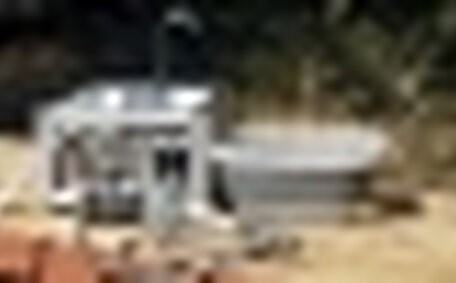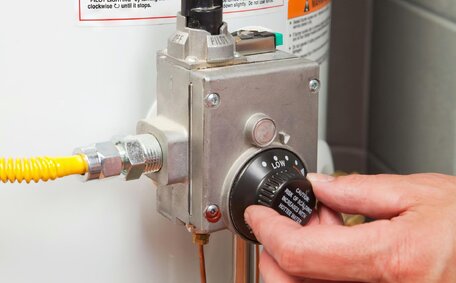Trust Hutchinson for Keeping Your Water Heater in Good Shape
p>p>p>p>p>p>p>
Having a reliable hot water system is essential for any home. Without it, daily life would be incredibly difficult.
Hot water allows us to enjoy hot showers, do laundry, wash dishes, and much more. Most homes rely on a water heater, also known as a hot water system, to heat and store water for on-demand use.
While water heaters provide an invaluable service, they do carry some risks. While water heaters provide an invaluable service, they do carry some risks.
Excessive water pressure, leaks, faulty installation, and other issues can, in rare cases, lead to explosions. Excessive water pressure, leaks, faulty installation, and other issues can, in rare cases, lead to explosions.
In this article, we’ll explore the underlying issues that can cause a water heater to explode. We’ll also cover the warning signs to watch for and tips on proper maintenance and safety checks. With some basic knowledge and preventative care, you can keep your water heater running smoothly for years to come.
What causes a hot water system to explode?
There are a few key factors that can lead to a hot water system explosion:
Excessive PressureToo much pressure buildup inside the tank is one of the main causes of water heater explosions. Most residential water heaters are designed for a maximum of 150 PSI (pounds per square inch). If the pressure exceeds this limit, the tank can rupture violently.
Several issues can cause high pressure, including:
- Faulty pressure relief valve - This safety valve is designed to open and release excess pressure. If it fails, pressure keeps rising.
- Thermal expansion - Heated water expands, raising tank pressure.
- Improperly sized tank - An undersized tank overworks to meet demand.
- Water pressure spikes - Surges from municipal supplies or well pumps.
Gas LeaksGas water heaters can leak combustible gas, leading to explosions. Causes include:
- Cracked heat exchanger - Allows gas to escape into home.
- Loose gas line connections - Creates escaping gas near ignition source.
- Corroded/damaged gas lines - Develops leaks.
Faulty InstallationIncorrect installation can create safety hazards:
- Water heater too close to flammable materials.
- Improper venting leading to gas buildup.
- Cross-threaded or loose fittings causing leaks.
- Overlooking local building codes.
Proper installation by a licenced professional helps avoid these risks.
Other Causesp>
Warning signs your hot water system may explode
p>There are several warning signs that could indicate your hot water system is at risk of exploding. Being aware of these signs and taking action can help avoid a dangerous incident.
Leaking Pressure Relief ValveAll water heaters have a temperature and pressure (T&P) relief valve. This safety valve releases water if either the temperature or pressure in the tank gets too high. A minor leak from the T&P valve may indicate the pressure is building up.
A steady drip or stream of water from the valve likely means the pressure is exceeding safe levels. Have a technician inspect and adjust the valve before pressure continues rising.
Rotten Egg SmellA distinct rotten egg odour, similar to sulphur, could signal a gas leak from your gas hot water system. Gas leaks are extremely hazardous as the gas can accumulate, ignite, and cause an explosion.
Turn off the gas supply line immediately if you detect this smell. Do not turn any electrical devices on or off, or use an open flame. Have a professional locate and repair the leak before using the hot water system again.
Popping, Knocking, Rumbling NoisesLoud banging or popping noises from your hot water system are very alarming. This sound may indicate steam and energy rapidly building up in the tank.
Turn off the power or gas supply to the unit. Strange noises signal something is critically wrong internally. Call a technician to inspect the system before continuing use.
Improper InstallationInstallation mistakes like loose fittings, inadequate venting, or incorrect tank sizing can lead to leaks, gas buildup and excessive pressure. Having an unqualified person install a water heater increases safety risks.
If your system was installed improperly, have it thoroughly inspected by a licenced plumber as soon as possible.
Rust Coloured Water
How to prevent your hot water system from exploding
A hot water system explosion can be avoided with some simple preventative measures. Follow these tips to keep your system operating safely for years to come:
Install a Pressure Relief ValveEnsure your water heater has a properly sized and functioning pressure relief valve (PRV). This safety valve releases excess pressure from the tank and is essential for controlling pressure. Have a licenced plumber check the PRV annually and replace it if it’s defective or old.
Monitor the Water PressurePurchase an inexpensive water pressure gauge and attach it to your water supply line. Pressure above 80 psi puts stress on the tank and pipes. Use a pressure reducing valve to maintain 50-60 psi.
Maintain Proper Temperature SettingsVery high water temperatures increase risk of explosion. Set your thermostat below 60°C to avoid excessive pressure buildup while still providing sufficiently hot water.
Inspect for Leaks and CorrosionCheck around the tank yearly for any drips, rust or other signs of leakage. Schedule professional servicing if corrosion is detected. Small leaks indicate bigger problems.
Invest in a Thermal Expansion TankHeated water expands, raising tank pressure. A thermal expansion tank absorbs this added volume, preventing pressure spikes.
Update Outdated UnitsOlder water heaters lack newer safety features and are more prone to failure. Units over 10 years may need replacement with a modern, properly sized model.
Have a Licenced Plumber Install ItAlways use qualified professionals for water heater installation and repairs. Improper work often leads to hazardous conditions.
Conduct Annual Maintenance






